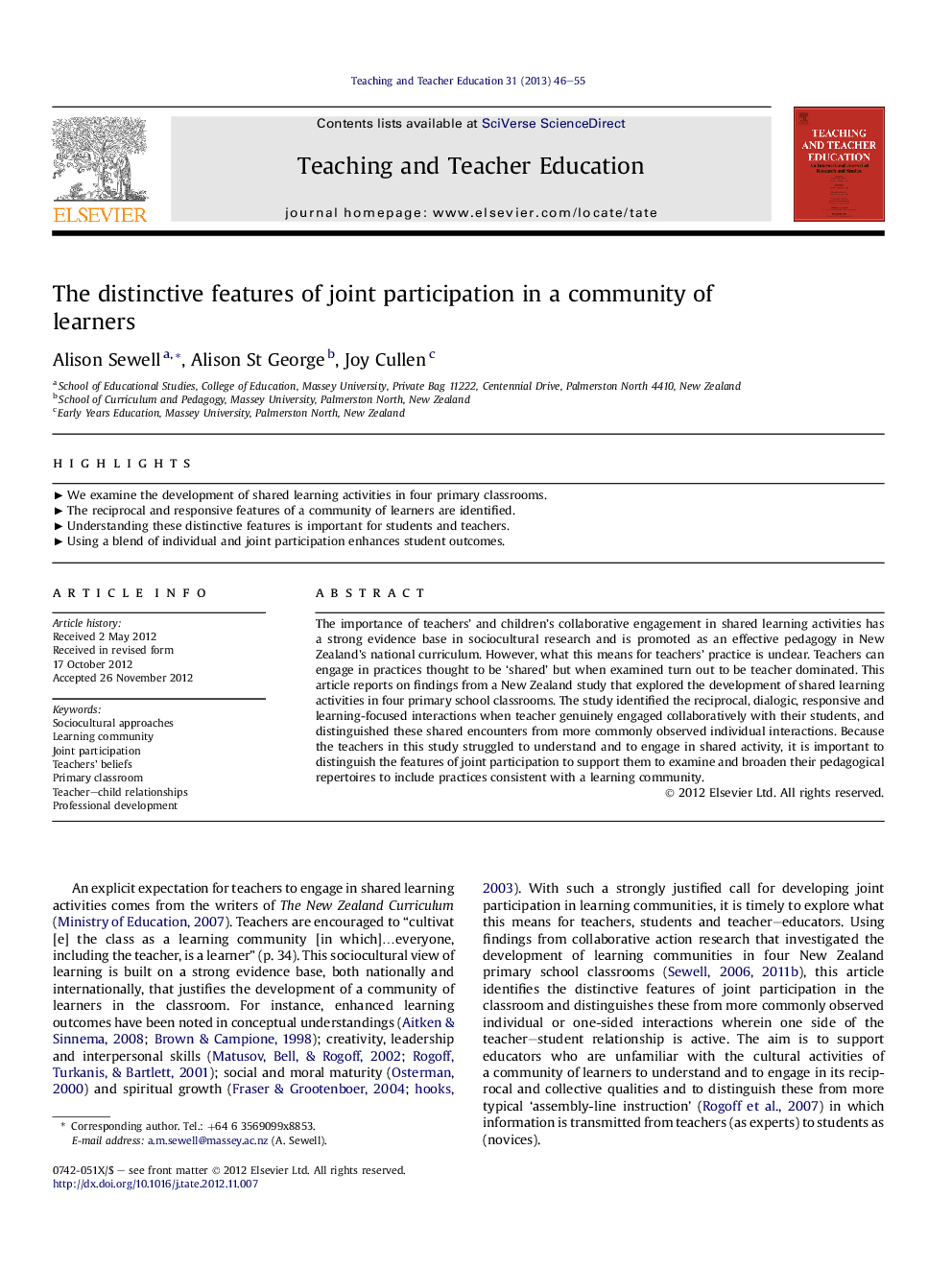| Article ID | Journal | Published Year | Pages | File Type |
|---|---|---|---|---|
| 374082 | Teaching and Teacher Education | 2013 | 10 Pages |
The importance of teachers' and children's collaborative engagement in shared learning activities has a strong evidence base in sociocultural research and is promoted as an effective pedagogy in New Zealand's national curriculum. However, what this means for teachers' practice is unclear. Teachers can engage in practices thought to be ‘shared’ but when examined turn out to be teacher dominated. This article reports on findings from a New Zealand study that explored the development of shared learning activities in four primary school classrooms. The study identified the reciprocal, dialogic, responsive and learning-focused interactions when teacher genuinely engaged collaboratively with their students, and distinguished these shared encounters from more commonly observed individual interactions. Because the teachers in this study struggled to understand and to engage in shared activity, it is important to distinguish the features of joint participation to support them to examine and broaden their pedagogical repertoires to include practices consistent with a learning community.
► We examine the development of shared learning activities in four primary classrooms. ► The reciprocal and responsive features of a community of learners are identified. ► Understanding these distinctive features is important for students and teachers. ► Using a blend of individual and joint participation enhances student outcomes.
